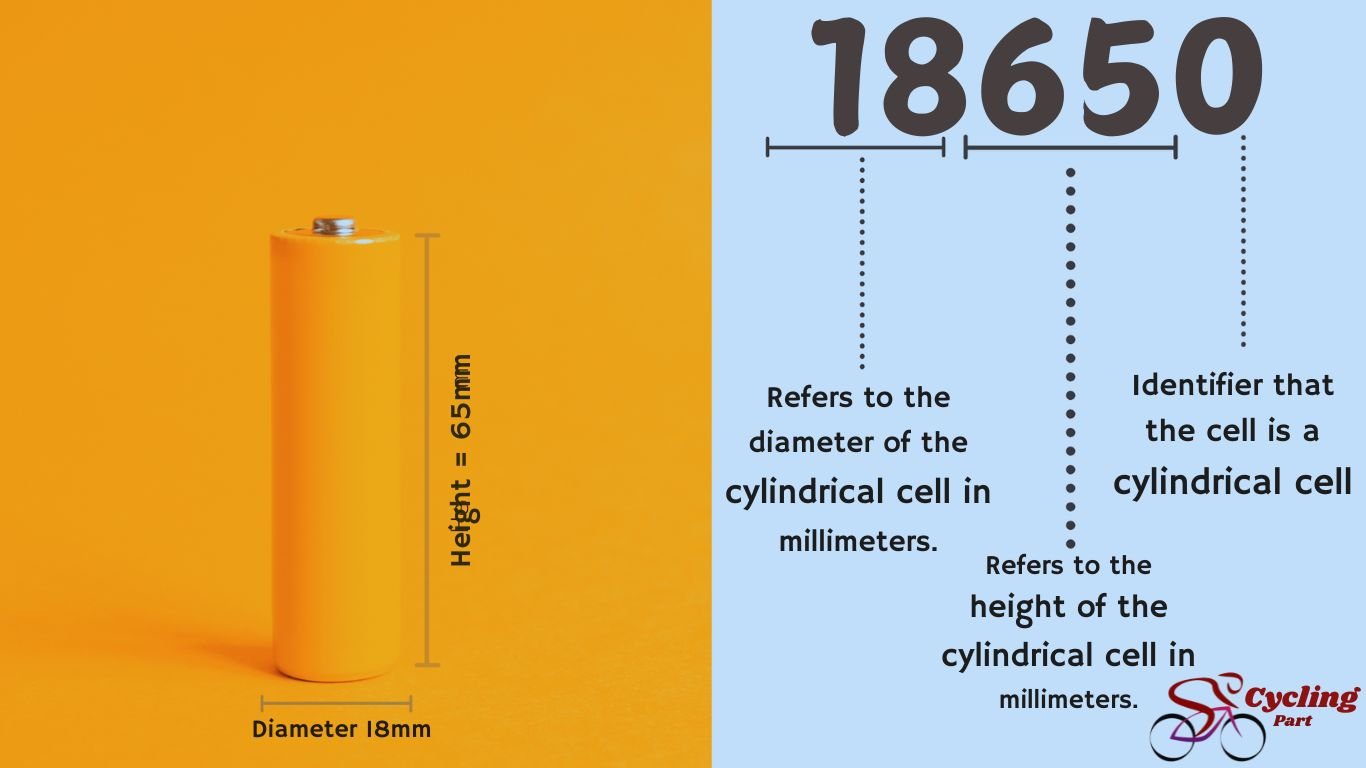Today, we will discuss What Size Battery is Best for an Electric Bike. The best battery size for an electric bike typically ranges between 400Wh and 700Wh. The ideal size depends on your riding needs and preferences.
Electric bikes have revolutionized transportation, offering a sustainable and efficient mode of travel. Choosing the right battery size is crucial for performance and range. A battery size between 400Wh and 700Wh is generally suitable for most riders. Smaller batteries are lighter and more affordable, ideal for short commutes.
Larger batteries provide extended range, perfect for long-distance travel. Consider your daily travel distance, terrain, and budget when selecting a battery. Proper battery care also enhances longevity and efficiency. Investing in the right battery ensures a smooth and enjoyable riding experience.
Table of Contents
Battery Basics
Understanding the battery is crucial for electric bike performance. The right battery powers your bike efficiently, providing longer rides and better reliability. Let’s explore the basics of electric bike batteries.
Voltage Explained
Voltage is the force that pushes electricity through the bike’s system. Electric bikes commonly use batteries with 36V, 48V, or 52V.
- 36V: Suitable for casual rides and flat terrains.
- 48V: Offers more power, great for hilly areas.
- 52V: Provides maximum power, ideal for steep climbs.
Higher voltage means more power and speed. Choose a voltage that matches your riding style.
Amp Hours And Capacity
Amp-hours (Ah) measure the battery’s capacity. It indicates how long the battery can supply power.
| Amp Hours (Ah) | Capacity |
|---|---|
| 10Ah | Short rides, light use |
| 15Ah | Moderate rides, mixed terrains |
| 20Ah | Long rides, heavy use |
Higher amp hours mean longer ride times. Select a battery with enough capacity for your typical rides.
Types Of Batteries
Choosing the right battery for your electric bike is crucial. The battery type influences your bike’s performance, weight, and range. Here, we explore the most common types of batteries used in electric bikes.
Lithium-ion
Lithium-ion batteries are the most popular choice for electric bikes. They are lightweight and have a high energy density. This means they can store more energy in a smaller space. These batteries also have a long lifespan, lasting several years with proper care.
- Lightweight
- High energy density
- Long lifespan
Lead Acid
Lead acid batteries are the oldest type used in electric bikes. They are much heavier than lithium-ion batteries. They also have a shorter lifespan and lower energy density. These batteries are cheaper but not as efficient.
- Heavy
- Short lifespan
- Low energy density
Nickel Metal Hydride
Nickel Metal Hydride (NiMH) batteries are less common today. They have a higher energy density than lead-acid batteries. They are lighter but still heavier than lithium-ion batteries. NiMH batteries are more environmentally friendly.
- Higher energy density than lead acid
- Lighter than lead acid
- Eco-friendly
Factors To Consider
Choosing the right battery size for your electric bike is crucial. Several factors influence this decision. Let’s explore these factors in detail.
Riding Distance
The distance you plan to ride affects battery size. Longer distances need larger batteries. Here’s a simple table to illustrate:
| Riding Distance (miles) | Battery Capacity (Wh) |
|---|---|
| Up to 20 miles | 300-400 Wh |
| 20-40 miles | 400-600 Wh |
| 40+ miles | 600+ Wh |
Terrain And Conditions
Different terrains use different amounts of battery power. Hilly areas need more power. Flat terrains use less power. Weather conditions also matter. Windy days can drain your battery faster.
Consider these conditions:
- Hills: Need a larger battery.
- Flat areas: A smaller battery is sufficient.
- Windy conditions: More power is needed.
Bike Weight
The weight of your bike impacts battery size too. Heavier bikes need more power. Light bikes use less power. Here’s a quick guide:
- Light bikes: Smaller battery (300-400 Wh).
- Medium bikes: Medium battery (400-600 Wh).
- Heavy bikes: Larger battery (600+ Wh).
Keep these factors in mind. They will help you choose the best battery size for your electric bike.

Battery Size And Performance
Choosing the right battery size for your electric bike is crucial. It affects both speed and range. Larger batteries provide more power, but they are heavier. Smaller batteries are lighter, but they may not last as long.
Impact On Speed
The size of the battery directly impacts the speed of your e-bike. Larger batteries can supply more power to the motor. This allows you to reach higher speeds quickly. Smaller batteries might limit your top speed. They can’t provide as much power to the motor.
Here’s a simple table to illustrate the impact:
| Battery Size | Speed |
|---|---|
| 500Wh | High |
| 250Wh | Moderate |
| 100Wh | Low |
Effect On Range
The size of the battery also affects the range of your e-bike. Larger batteries hold more energy, allowing you to travel further. Smaller batteries will deplete faster, shortening your travel distance.
Consider the following range estimates based on battery size:
- 500Wh: 40-50 miles
- 250Wh: 20-30 miles
- 100Wh: 10-15 miles
Charging And Maintenance
Proper charging and maintenance of your electric bike’s battery are crucial. These practices ensure longevity and peak performance. Understanding charging time and battery lifespan helps in making informed decisions.
Charging Time
Charging time varies depending on the battery size and type. Smaller batteries typically charge faster but may offer less range. Larger batteries take longer to charge but provide extended travel distances.
Here is a simple comparison:
| Battery Size | Charging Time |
|---|---|
| Small (250-350Wh) | 2-4 hours |
| Medium (400-500Wh) | 4-6 hours |
| Large (600Wh and above) | 6-8 hours |
Always use the charger provided by the manufacturer. It ensures safety and efficiency.
Battery Lifespan
The lifespan of your electric bike’s battery is influenced by how well it is maintained. On average, a battery lasts for 500-1000 charge cycles. Following best practices can extend this lifespan.
- Charge your battery regularly.
- Avoid completely depleting the battery.
- Store the battery in a cool, dry place.
Keeping the battery clean also helps. Wipe it with a damp cloth and avoid water exposure.
Here is a quick maintenance checklist:
- Check for any damage or corrosion.
- Ensure the battery is securely attached.
- Inspect the charging port for debris.
Following these tips can help maximize the battery’s lifespan and efficiency.

Cost Vs. Benefits
Choosing the right battery for your electric bike can be confusing. One important consideration is the Cost vs. Benefits. This helps determine whether the initial investment is worth it.
Initial Investment
The initial cost of an electric bike battery can vary. Higher-capacity batteries generally cost more. Below is a table showing different battery capacities and their approximate costs:
| Battery Capacity (Wh) | Approximate Cost (USD) |
|---|---|
| 250 Wh | $300 – $400 |
| 500 Wh | $500 – $700 |
| 750 Wh | $800 – $1000 |
| 1000 Wh | $1100 – $1400 |
A higher-capacity battery has a larger initial cost. But it offers more range and power. This can be crucial for longer rides or hilly terrains.
Long-term Savings
A higher-capacity battery can lead to significant long-term savings. Here are some benefits:
- Fewer replacements: Higher capacity batteries last longer. You won’t need to replace them as often.
- Extended range: More capacity means you can ride longer distances. This reduces the need for frequent charging.
- Better performance: Larger batteries offer better performance. This can reduce wear and tear on the bike.
Consider a 750 Wh battery. You might spend $800 upfront. But you’ll save on replacement costs and get better performance.
Top Recommendations
Choosing the right battery for your electric bike is crucial. It determines how far you can go and how well the bike performs. Here are our top recommendations for different types of rides.
Best Battery Size For Commuting
Commuting requires a reliable battery. You need one that lasts long enough for daily trips.
- 36V 10Ah Battery: Ideal for short city commutes.
- 48V 12Ah Battery: Offers more power for longer urban rides.
These batteries balance power and weight. They are perfect for daily use without adding too much bulk to your bike.
Best Battery Size For Long Rides
Long rides need batteries with more capacity. You want to go far without worrying about recharging.
- 48V 20Ah Battery: Provides extended range for long trips.
- 52V 15Ah Battery: Offers a good balance of power and distance.
These batteries are built for endurance. They are great for weekend adventures or long-distance travel.
Best Battery Size For Mountain Biking
Mountain biking demands high-power batteries. You need strong, durable batteries for tough terrains.
- 52V 20Ah Battery: Delivers high power for steep climbs.
- 48V 18Ah Battery: Offers good performance on rugged paths.
These batteries give you the extra boost needed for challenging rides. They are designed to handle rough trails and steep hills.
| Purpose | Recommended Battery |
|---|---|
| Commuting | 36V 10Ah, 48V 12Ah |
| Long Rides | 48V 20Ah, 52V 15Ah |
| Mountain Biking | 52V 20Ah, 48V 18Ah |
Choose the battery that fits your riding style. Each option provides the best performance for its category.

Frequently Asked Questions:
What Size Battery Is Optimal For An Electric Bike?
The optimal battery size depends on your riding needs. Generally, a 36V or 48V battery is recommended for most electric bikes.
How Do I Choose An Electric Bike Battery?
Choose based on your riding distance and terrain. Higher voltage batteries provide more power and range.
Does Battery Size Affect Electric Bike Performance?
Yes, battery size impacts range and power. Larger batteries offer longer rides and better performance on hills.
What Is The Typical Range Of Electric Bike Batteries?
Most electric bike batteries offer a range of 20-60 miles per charge. This varies based on usage and terrain.
Conclusion
Choosing the right battery size for your electric bike enhances performance and range. Consider your riding habits and terrain. A larger battery offers longer trips, while a smaller one may suffice for short commutes. Evaluate your needs to find the perfect balance.
Happy riding!

